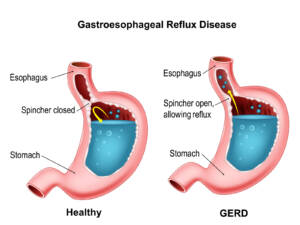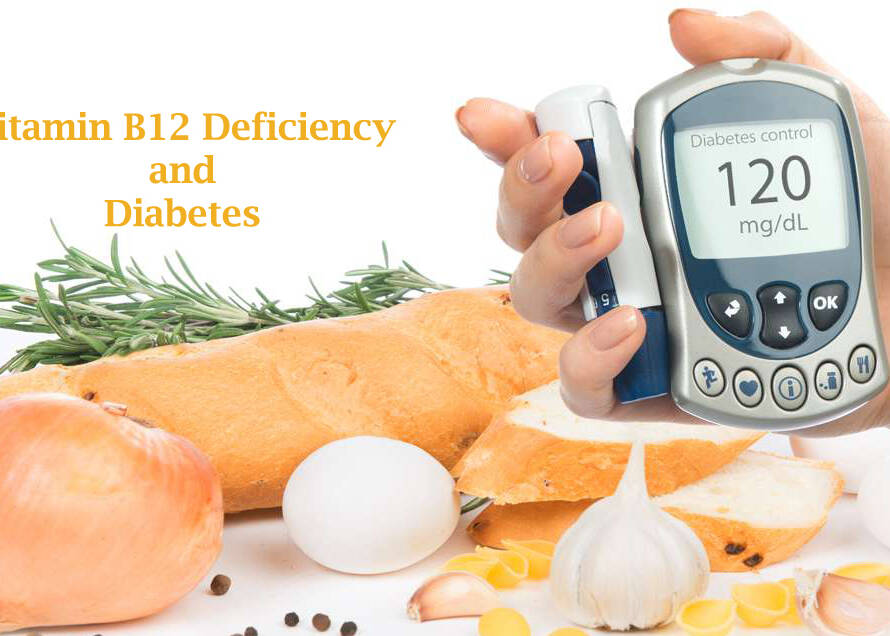Do you often experience heartburn, a sour taste in your mouth, or even trouble swallowing? It may be due to Gastroesophageal Reflux Disease. It occurs when stomach acid, along with partially digested food, flows back into the tube that connects your throat to your stomach, known as the oesophagus. This happens due to improper functioning of a valve called the lower oesophageal sphincter (LES), situated between the oesophagus and the stomach. It is responsible for preventing the contents of the stomach, including stomach acid, from flowing backward into the oesophagus. When the LES doesn’t close properly or relaxes too frequently, stomach acid can escape into the oesophagus, causing irritation and the characteristic burning sensation.

Cause
GERD can be caused by many things such as:
- Eating large meals.
- Certain foods like fried foods, spicy foods, tomatoes and processed tomato-based products citrus fruits, peppermint, garlic, onions, chocolate, coffee, tea, and carbonated beverages.
- Exercising after a meal.
- Lying down, especially after meals.
- Smoking and drinking alcohol.
- Hiatal hernia, which is a bulging of the stomach into the chest, can cause reflux.
- Increased pressure on the abdomen by being overweight or pregnant or even by wearing tight clothes.
- Strain while coughing, bending, or lifting.
- Emotional stress may worsen GERD, especially for people with high levels of anxiety.
Symptoms
GERD is not the same in each person, but the most common symptoms are:
- Heartburn (burning feeling in the chest), that usually happens 30 to 60 minutes after eating; often worse when you are lying down. The discomfort can be intense and is usually mistaken for a heart problem.
- Feeling, like food is coming back up into your mouth, maybe with a bitter taste.
- Sore or hoarse throat.
- GERD can irritate the airways, leading to a persistent cough that may be mistaken for allergies or a respiratory infection.
- Feeling like there is a lump in your throat or as though food sticks in your throat when going down.
- Nausea
- Trouble swallowing
- Frequent burping
Treatment
Diet & lifestyle changes play a crucial role in managing GERD by reducing the frequency and severity of symptoms.
Nutritional advice
- Avoid trigger foods that may make your symptoms worse. Try keeping a food diary to keep track of which foods trigger your symptoms.
- Choose fruits with lower acidity levels, such as bananas, melons, apples, papaya and pears.
- Opt for lean sources of protein, such as skinless poultry, fish. Avoid high-fat meats and processed meats like sausages and bacon.
- Choose whole grains like oatmeal, brown rice, whole wheat bread, and whole grain pasta. Avoid or limit foods made with refined grains.
- Opt for low-fat or fat-free dairy products, such as skim milk, yogurt, and cheese.
- Limit portion sizes.
- Eat several small meals throughout the day.
- Eat Slowly and Mindfully: Chew your food thoroughly and savour each bite. Eating too quickly can lead to swallowing air, which can exacerbate GERD symptoms.
- Cooking Methods: Choose gentle cooking methods like baking, steaming, grilling, or broiling instead of frying.
- Ginger and Aloe Vera: Ginger and aloe vera are known for their soothing properties. Consider incorporating them into your diet, either through ginger tea or by adding aloe vera to smoothies or drinks.
- Chew Gum: Chewing sugar-free gum between meals can stimulate saliva production, which helps neutralize stomach acid.
- Stay Hydrated: Drink plenty of water throughout the day but avoid drinking large amounts just before or after meals, as this can increase stomach pressure.
- Dinner Timing: Have your largest meal earlier in the day and keep dinner portions smaller.
- Meal Spacing: Allow at least 2-3 hours between your last meal or snack and bedtime to give your stomach time to digest food.
Lifestyle changes
- Don’t bend over, lie down or exercise after a meal.
- Sleep on your LEFT side.
- Lose weight if you are overweight.
- Raise the head of your bed 6-8 inches with blocks or a wedge under your mattress.
- Avoid tight-fitting clothing.
- Stop smoking.
- Engage in regular, moderate-intensity exercise. Avoid vigorous exercise immediately after eating.
- Limit or reduce stress in your life. Try breathing exercise, yoga, or meditation techniques.
- Avoid non-steroid and anti-inflammatory drugs (ibuprofen, Aleve), aspirin and pain medications as these can make heartburn worse.
Medication –Antacids can give short-term relief of acid reflux.
Remember that individual triggers and sensitivities can vary, so it may take some experimentation to determine what works best for you. Many individuals can manage their symptoms effectively with diet and lifestyle modifications. If these changes do not provide sufficient relief, consult a doctor.


